- Details
- Category: Senator Andy Manar News
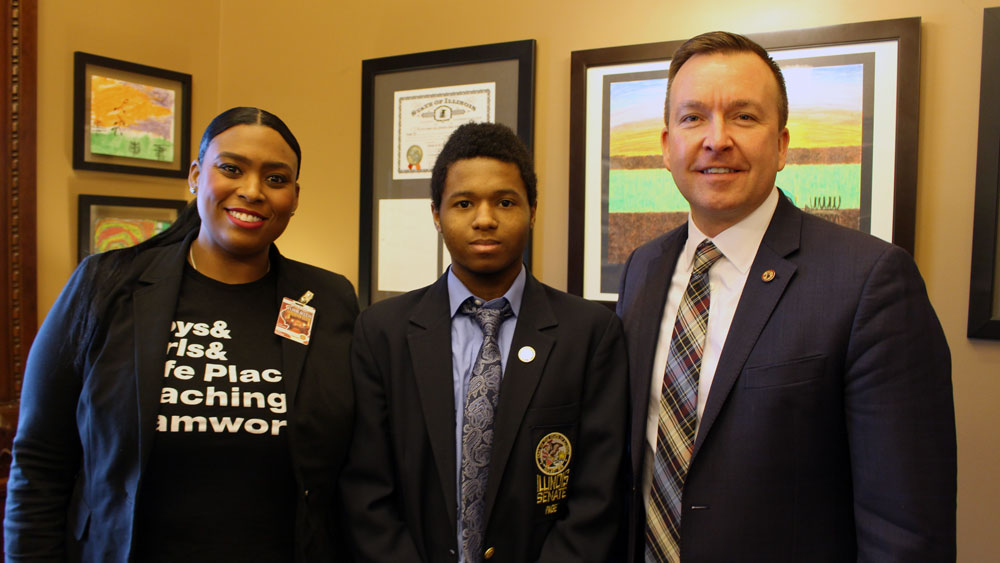
SPRINGFIELD – State Senator Andy Manar (D-Bunker Hill) welcomed Springfield High School senior Micah Jackson to the Capitol on Tuesday as part of Manar’s Future Leaders program and to recognize him for being named Boys & Girls Clubs of Central Illinois Youth of the Year for 2019-2020.
Accompanying Jackson was Tiffany Mathis, who was appointed Executive Director and CEO of the Boys and Girls Clubs of Central Illinois in January.
“The Boys & Girls Club is such a positive force in this community. Cultivating young leaders and preparing them to succeed is some of the most important work we can do,” Manar said. “The impact of Tiffany Mathis and professionals like her is evident to anyone who has had the pleasure of meeting students like Micah Jackson.”
Jackson, 17, shadowed Manar for the day, joining him in committee meetings and on the Senate floor where he met other state lawmakers and observed them as they debated and voted on legislation.
- Details
- Category: Senator Suzy Glowiak Hilton News
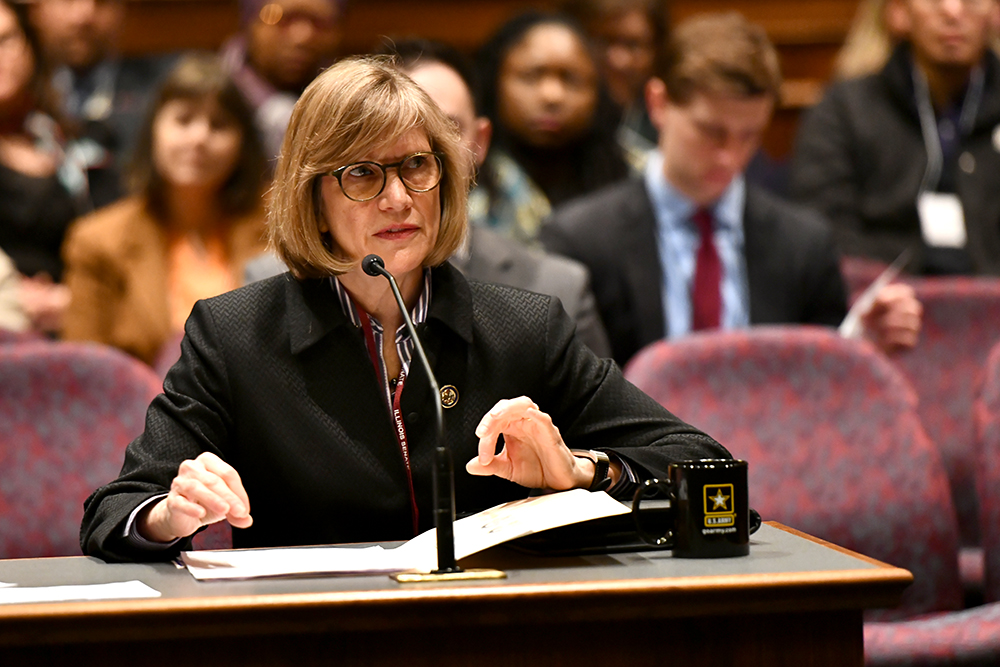
SPRINGFIELD – State Senator Suzy Glowiak Hilton (D-Western Springs) is calling on the Federal Communications Commission (FCC) to establish a 3-digit suicide hotline for Americans experiencing mental health crises.
“Mental health crises are becoming more prevalent, specifically in young people, and we need national leadership on this issue,” Glowiak Hilton said. “Creating a dedicated emergency hotline for this will save lives.”
Over 1,000 people commit suicide each year in Illinois alone. LGBT, American Indian, and veteran communities are particularly vulnerable to suicidal thoughts.
Read more: Glowiak Hilton: Suicide prevention should be as easy as a 911 call
- Details
- Category: Senator Laura Ellman News
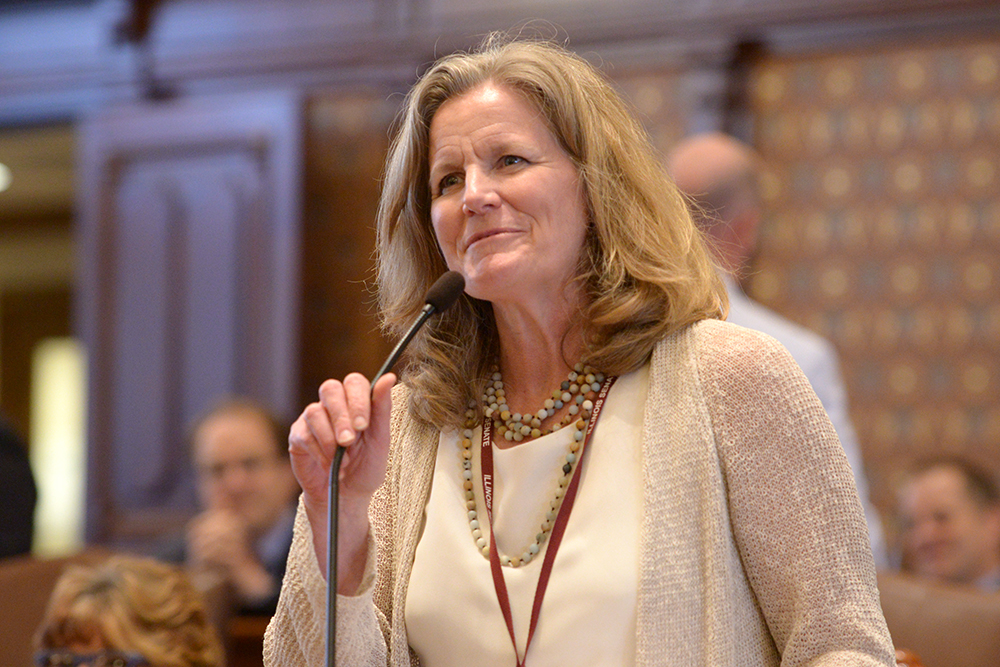
SPRINGFIELD – State Senator Laura Ellman (D-Naperville) is taking action to remove an arbitrary law that prohibits drinking alcohol and hasn’t been enforced in nearly a century.
“I was shocked to learn that people were technically breaking the law by ordering a glass of wine on Amtrak,” Ellman said. “There’s no reason responsible adults shouldn’t be able to enjoy an alcoholic beverage on a train.”
Senate Bill 2961 repeals the Railroad Intoxicating Liquor Act of 1911, which prohibits drinking alcohol on trains, around train stations and gives conductors the ability to arrest violators and charge them with a Class C misdemeanor.
- Details
- Category: Senator Christopher Belt News
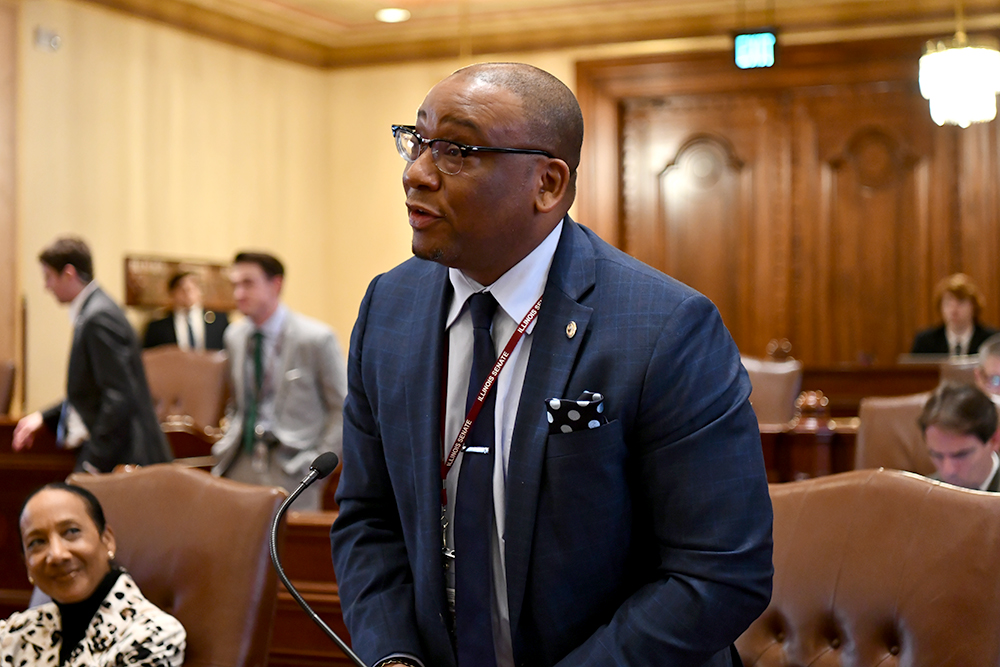
SPRINGFIELD – Illinois residents who have been awarded the Defense Superior Service Medal would be able to receive special license plates under an initiative sponsored by State Senator Christopher Belt (D-Centreville).
“It’s important that we recognize these officers’ commendable service, and allowing the Secretary of State to issue these special plates is one way we can show our thanks,” Belt said. “These officers put their lives on the line for our country. It would be an honor for the State of Illinois to be able to give them this small token of our appreciation.”
Read more: Belt honors awardees of Defense Superior Service Medal with special plate
- Details
- Category: Senator Patrick Joyce News
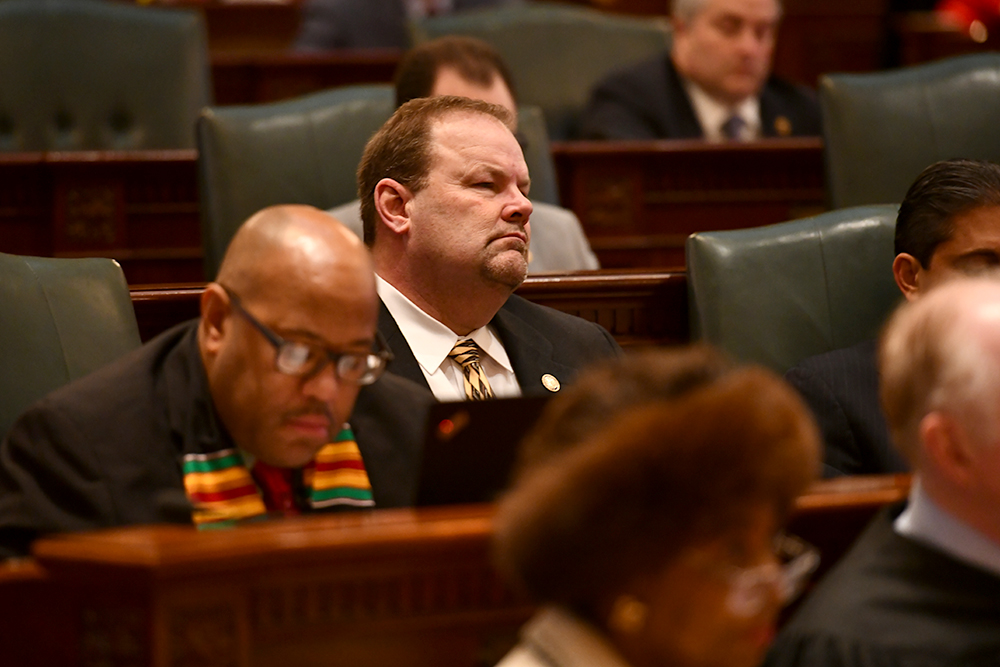
SPRINGFIELD – Because local governments deserve a bigger share of the state’s income tax revenue, State Senator Patrick Joyce (D-Essex) introduced Senate Bill 3392, an initiative to relieve the burden of property taxes and shore up critical services and programs.
Originally introduced by State Rep. Anthony DeLuca, the plan increases state payments toward the Local Government Distributive Fund. When lawmakers increased the state income tax in 2011, they also reduced the amount of the LGDF for municipalities from 10% to 6%.
Read more: Joyce offers a bill that would restore state funds to local governments
- Details
- Category: Senator Scott Bennett News
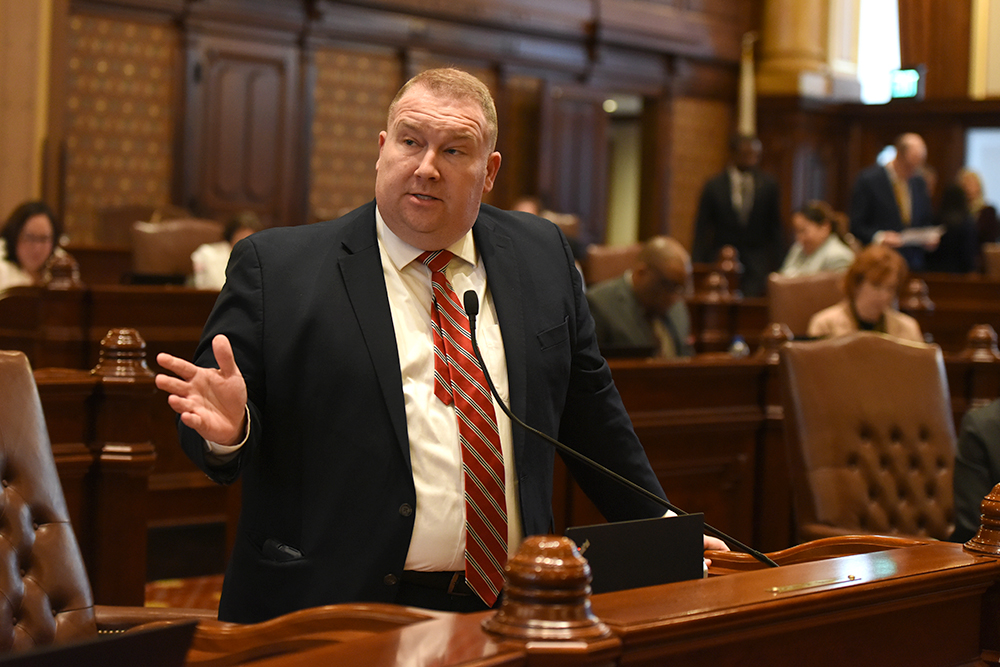
SPRINGFIELD – A measure sponsored by State Senator Scott Bennett clarifying Illinois’ complex court fee system cleared the Senate State Government Committee Wednesday.
The proposal, Senate Bill 2557, specifies funds collected by county clerks from fees, assessments and fines are to be transferred to the State Treasurer to be deposited into the appropriate fund.
“The purpose of this legislation is to ensure court fines and fees are streamlined so that it’s easier for the clerks to administer,” Senator Bennett (D-Champaign) said. “This bill creates a more coherent system that will increase efficiency.”
Read more: Bennett plan to simplify court fee structure in Illinois clears committe
- Details
- Category: Member News

SPRINGFIELD — The Illinois Legislative Black Caucus responded to Gov. JB Pritzker’s budget address on Wednesday.
Black Caucus leaders discussed areas within the governor’s budget proposal that specifically affect black communities, including early childhood education, economic development and public safety.
Senate Majority Leader Kimberly A. Lightford, Chair of the ILBC:
“I am thrilled Governor Pritzker has a significant plan for education from birth to college. I share his enthusiasm for educating our young people because it is proven that their success lies in the quality of their education.
“Educating our young people has always been a central focus of the Black Caucus. We understand that in order for communities to grow and advance, they need to be educated. We look forward to joining the governor in the fight for equitable funding and access to education.”
Read more: Black Caucus: Governor’s vision sets state on path to help black communities
- Details
- Category: Member News
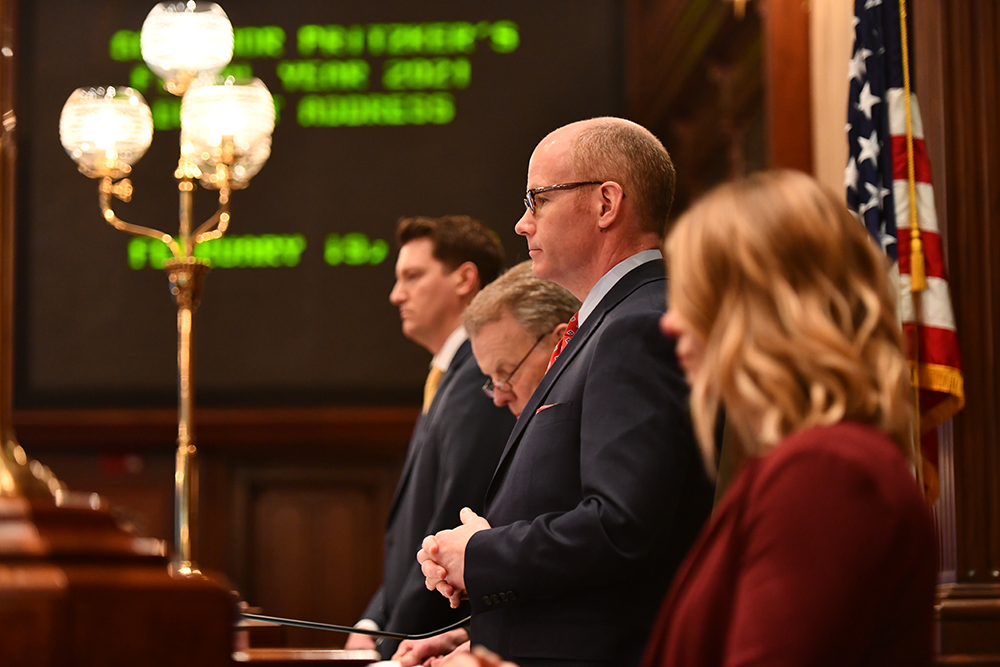
SPRINGFIELD — Democratic members of the Illinois State Senate were generally pleased with Governor JB Pritzker’s second budget proposal. It highlighted that they and the governor share many of the same priorities to move Illinois forward and achieve permanent budget stability and government functionality.
The governor’s budget included large proposed increases to early childhood education funding, need-based financial aid programs for college students, and for a number of important social services programs that help grant people with disabilities and seniors lives filled with comfort and dignity. Democratic senators commented on many of the items they felt were most important in the proposal.
Read more: Illinois Senate Democrats see hopeful signs in Pritzker’s second Budget Address
More Articles …
Page 710 of 763